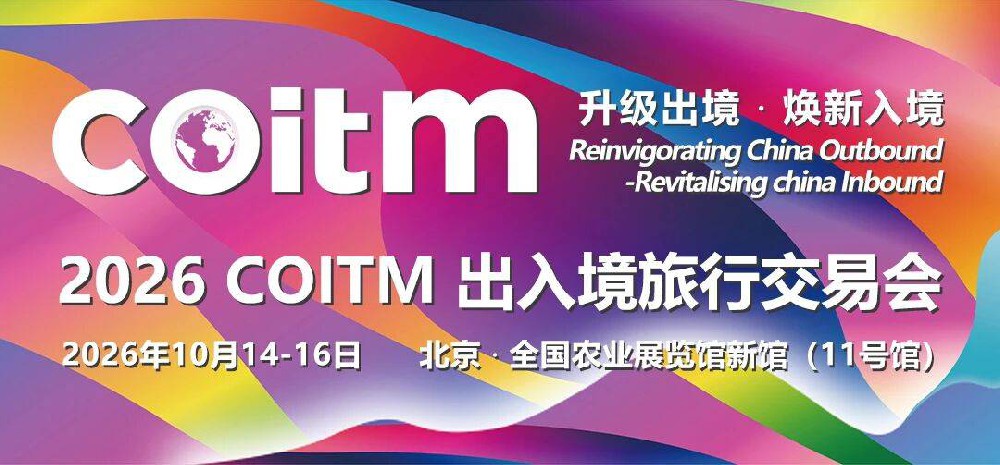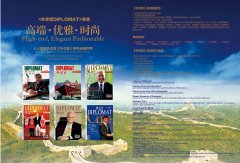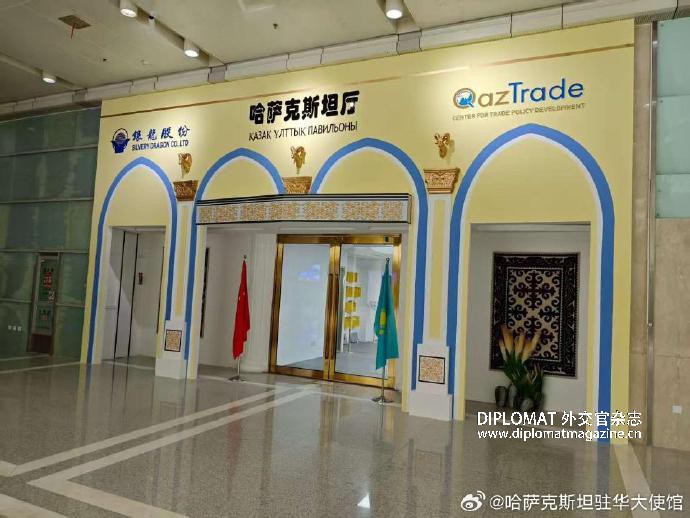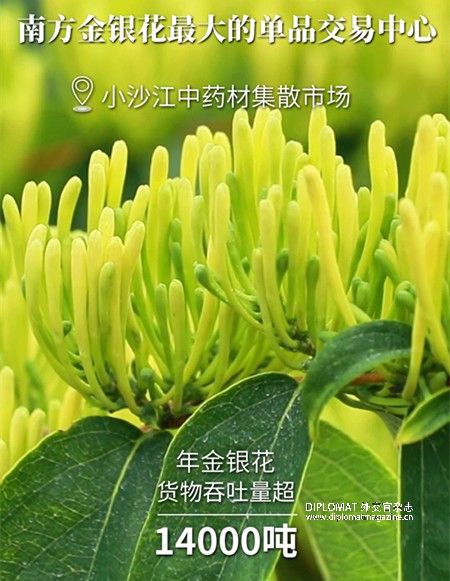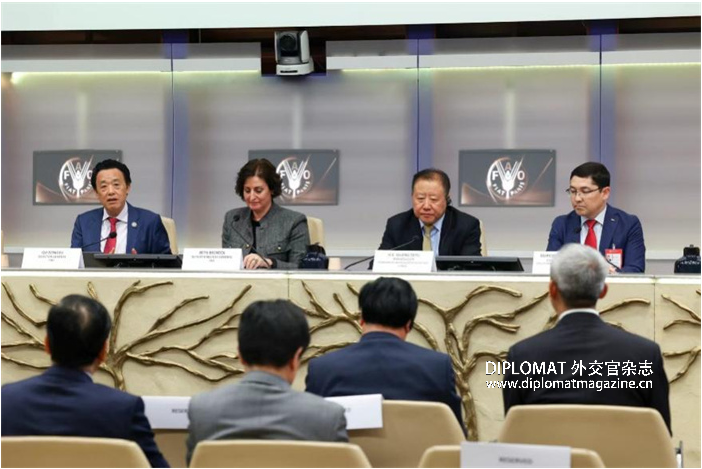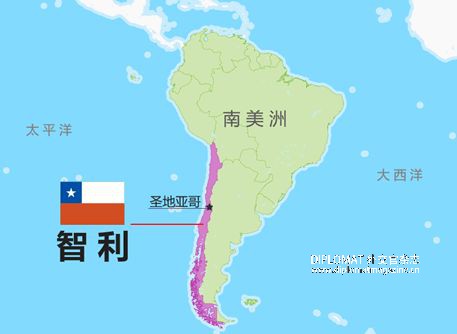导语:Uzbekistan has entered a new stage of development. Building upon the foundations of the third Renaissance, the people of Uzbekistan draw upon their rich cultural and spiritual heritage. The great thinkers of the past, known as the Jadids, have been the inspirations behind the modern idea of the New
Uzbekistan has entered a new stage of development. Building upon the foundations of the third Renaissance, the people of Uzbekistan draw upon their rich cultural and spiritual heritage. The great thinkers of the past, known as the Jadids, have been the inspirations behind the modern idea of the New Uzbekistan. Thanks to their efforts, a foundation has been laid for secular development, the pursuit of knowledge and enlightenment.
President Shavkat Mirziyoyev has repeatedly emphasized that higher education, science and innovation should serve as the main pillars of progress. The new version of the Constitution enshrines the fundamental structure of Uzbekistan as a social state. This means strategically establishing the responsibilities of the state in ensuring equal rights and opportunities, particularly in the context of providing quality education and enabling young people to fully realize their potential.
Over the past decades, it has been proven that education, especially higher education, has a positive impact on economic growth and sustainable long-term development in countries with varying income levels. The sphere of higher education in Uzbekistan plays an important role in the formation of human capital and stimulates scientific research and innovation, which are vital for economic development.
In continuation of the reforms outlined in the Development Strategy of the New Uzbekistan for 2022-2026, the President has approved the "Uzbekistan 2030" Strategy. It aims to take the ongoing transformations to a new stage, with special attention given to the education system. The document sets goals such as expanding the coverage of higher education among young people to at least 50 percent and increasing the effectiveness of scientific research and the scientific potential of universities to 70 percent. It also includes the implementation of a dual degree system based on at least 50 joint educational programs with foreign universities ranked in the top 500.
To prepare specialists with higher education who meet the requirements of the labor market, the practice of academic mobility has been introduced through the implementation of the program in accordance with the Presidential Decree "On the Approval of the Concept for the Development of the Higher Education System of the Republic of Uzbekistan until 2030". The state grants autonomy to universities in implementing academic mobility for students, young researchers, professors and doctoral students in cooperation with other universities based on mutual agreements, encouraging the exchange of knowledge and experience.
A credit-modular system is being phased in at universities in Uzbekistan, which contributes to improving the quality of education in line with European standards. Grants are being provided to stimulate gifted young people engaged in scientific activities and to organize their short-term internships at foreign universities and research centers.
According to the World Bank's report for 2023, the higher education system in Central Asia consists of more than 430 universities. According to the Ministry of Higher Education, Science and Innovation there are 213 universities in Uzbekistan, including 116 public universities, 67 private universities, and 30 branches of foreign higher education institutions. Over the past decade, Uzbekistan has increased its investment in this sector from 0.25 to 0.89 percent of GDP in 2022.
The Central Asian states share similar priorities for the development of higher education. They aim to improve its quality through the implementation of modernized accreditation systems and competitive mechanisms while aligning the skills of graduates with the needs of the labor market. Most countries prioritize the continuous professional development of university staff, the implementation of innovative teaching methods, the modernization of credit-modular systems, and the enhancement of educational flexibility.
However, universities in Central Asia face difficulties in prioritizing scientific activities, which leads to insufficient development of research potential. This hinders the process of transforming research results into marketable products and services and integrating them into national innovation ecosystems. The region has one of the lowest levels of research funding in the world, with only 0.12 percent of GDP, surpassing only the countries of the Caribbean Basin.
For comparison, global average spending on research and development is around 2.6 percent of GDP, 1.3 percent in Central European and Baltic countries, and 0.5 percent in countries with below-average income. Funding per researcher in our region amounts to approximately $25,000, significantly lower than the global average of $166,000 and $193,000 in East Asia. The share of Central Asia in the total number of scientific publications in the world barely exceeds 0.1 percent.
Solutions to these problems have been outlined for the coming years. In Uzbekistan, to stimulate science and scientific activities, investments are planned to increase sixfold by 2025 and tenfold by 2030. It is also envisaged to increase the share of private sector funds allocated to research and development work in the overall science funding from 8 to 20 percent by 2025 and raise it to 30 percent by 2030. The government intends to create ten venture funds by 2025 in collaboration with leading foreign investment companies to finance innovative developments and startups.
In 2021, the Central Asian countries adopted the Turkestan Declaration at the Education Ministers Forum, which aims to unite the scientific, intellectual and creative potential of the region. The five countries committed to collaborate on joint educational and scientific projects, create a free zone that allows students and faculty to travel throughout the region for education and scientific internships, open university branches and integrate educational programs.
The Westminster International University in Tashkent (WIUT) makes a significant contribution to higher education and science in Uzbekistan. It is the first international university in the country to provide educational and research opportunities in line with global standards. The university's contribution to sustainable development, as recognized by "THE Impact Rankings," a global ranking that evaluates the effectiveness of universities in achieving the 17 Sustainable Development Goals (SDGs), is also noteworthy.
In 2023, WIUT entered the ranking for the first time and ranked first among universities in Uzbekistan for SDG 8: "Decent Work and Economic Growth," and also emerged as the leader for SDG 17: "Partnerships for the Goals." The university was also awarded the "Best University Scopus Awards Uzbekistan-2023" for its scientific achievements in the field of social sciences. The "Scopus Awards" is a global initiative by "Elsevier," one of the most prestigious scientific awards. The award aims to encourage scientists, maintain their status and popularize professional scientific activities among young researchers. WIUT achieved this recognition through the collective efforts of its faculty members, students and their commitment to increasing knowledge and academic excellence, making a worthy contribution to global science.
The Westminster International University in Tashkent actively develops higher education at the national level and is a member of four working groups under the Ministry of Higher Education, Science and Innovation, focusing on the quality of education in universities, inclusive higher education, sector management and transnational education. WIUT promotes scientific activities through weekly seminars and trainings, annual research conferences and forums, organizing summer schools for young researchers and joint projects with the University of Westminster in London.
WIUT plays an important role in developing the startup infrastructure. One significant milestone in the regional development of innovation activities is the university's participation in the Innovation Week of the Central Asia Regional Economic Cooperation (CAREC) and the Digital Economy Tour 2023 held in Hangzhou, China. Last summer, WIUT students completed an innovation exchange program initiated by the Asian Development Bank and CAREC. It brought together teams of top startups from leading universities in Kazakhstan, Uzbekistan, Azerbaijan and Georgia. The project aimed to promote cross-border cooperation among young entrepreneurs and unleash the region's immense potential for innovation and entrepreneurship.
The university makes a significant contribution to the preparation of highly qualified specialists, helping them develop leadership, professional and soft skills and facilitating successful employment. In September 2023, the university, in collaboration with a recruiting agency, conducted an innovative project called "Ustoz-shogird@WIUT." It provided students and graduates of WIUT and other educational institutions with mentorship from leading experts in the field of management and human resource management. Recently, the university and the Focus School of Arts announced the launch of an innovative project called "Creative Focus@WIUT," aimed at creating a unique platform for students passionate about creativity and the creative industry. It covers a wide range of disciplines, including film, contemporary, classical and digital art, television projects, show business, fashion industry and many more.
The modernization and dynamic development of the education sector are essential components of the economic, cultural and spiritual revival process, creating a New Uzbekistan and a foundation for the Third Renaissance. Observing the comprehensive reforms in the higher education and science system initiated by the Head of State, one can conclude that the country will succeed in developing human capital, establishing a knowledge-based model of economic development. Special attention is paid to the real needs of the labor market and the gradual transition from a resource-oriented economy to a knowledge-based economy. The New Uzbekistan strengthens its position in the global community, becoming an educational hub in the Central Asian region.




